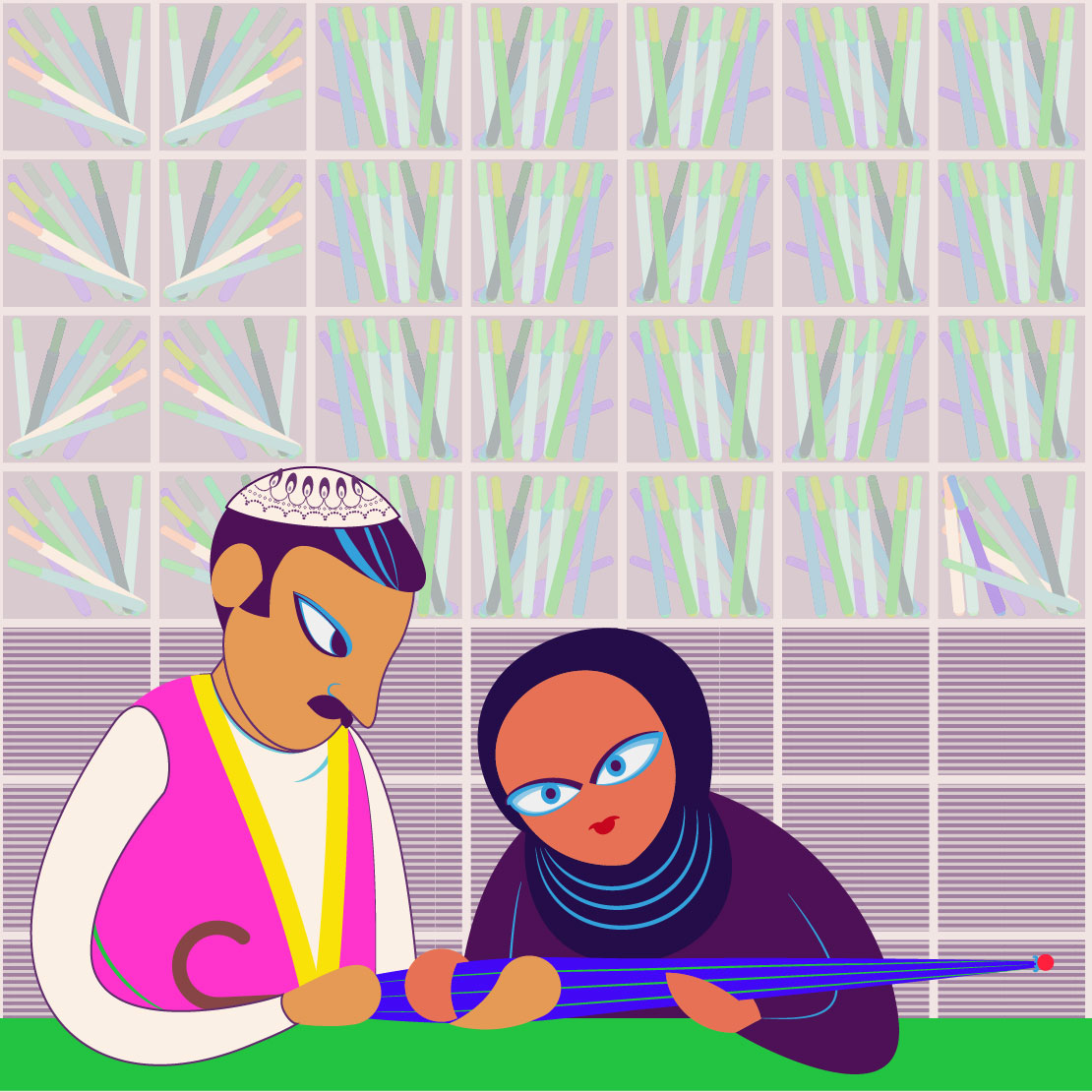عید مبارک ईद मुबारक

Id is a time of celebration after a long period of fasting. In a typical year, millions would travel to their hometowns to celebrate the end of the fasting month of #Ramzan ( #ramadan) with their families, and crowd into markets and malls sharing greetings and sweets. However, this year, celebrations are more personal and less communal – due to a dreaded pandemic.
India is home to the second largest muslim population in the world. Surprised? So, when I was growing up, we saw Id celebrations everywhere and my grandfather’s best friend would present him with a #raan (leg of goat). In India, almost every Muslim stops to rejoice for a few minutes following the adhan. Muslims break their fasts with family and friends, with most Mosques also arranging free ‘iftar’. Preparations for #iftar commence hours before, in homes and at roadside stalls – may be even buy a lovely new umbrella to prepare for the impending monsoons a couple of months later. Iftar begins by eating dates or drinking water, but this is only the opening of a rich meal. The spread of ‘iftar’ can be grand, with both vegetarian to non-vegetarian dishes and a variety of juices and sherbets. Iftar usually is a heavy meal and is followed by a second, lighter dinner eaten before the night (isha) prayers and the taraweeh prayers.
Since India is a diverse country, there are variations in how Id is celebrated as well. In Hyderabad and nearby areas, people often break their fast with #Haleem because it has a rich taste and is quite filling. In other southern states (Tamil Nadu and Kerala), Muslims break their fast with nonbu kanji, a rich, filling rice dish of porridge consistency, cooked for hours with meat and vegetables. This is often served with bonda, bajji, and vadai. Vegetarians break their fast with a dish called surkumba, which is prepared from milk, and this is particularly popular in certain parts of Karnataka. In northern states like Delhi, Uttar Pradesh, Madhya Pradesh and West Bengal, the fast is typically ended with fresh dates, cut fresh fruits (sometimes served as chaat) and fruit juice along with fried dishes like samosas, pakodas etc.
Given that I was witness to these joyous celebrations, and looked forward to the muezzin’s call to prayer, I am utterly ashamed of the anti-muslim rhetoric growing in strength in India today. Let’s not forget the true message of ANY religion or festivities which is to serve others and bring communities together, and at no time is this more important to remember than now as we are still in the middle of a pandemic.
Let’s remember to love and protect each other by following all the protocols necessary to stop this virus in its tracks, so that by next year, we can all celebrate as we have for centuries.
